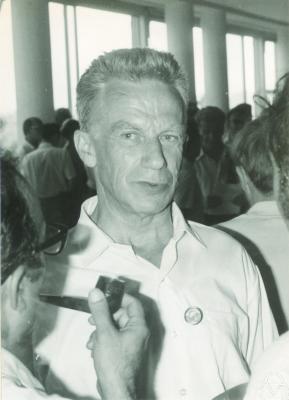<Back to Index>
- Mathematician Sergei Lvovich Sobolev, 1908
- Sculptor Adolf von Hildebrand, 1847
- President of the State of Haiti Henri Christophe, 1767
PAGE SPONSOR

Sergei Lvovich Sobolev (Russian: Серге́й Льво́вич Со́болев; 6 October 1908 – 3 January 1989) was a Soviet mathematician, working in mathematical analysis and partial differential equations. He was born in St. Petersburg, and died in Moscow.
Sobolev introduced the notions that are now fundamental for several different areas of mathematics. Sobolev spaces can be defined by some growth conditions on the Fourier transforms; they and their embedding theorems are an important subject in functional analysis. Generalized functions (later known as distributions) were first introduced by Sobolev in 1935 for weak solutions, and further developed by Laurent Schwartz. Sobolev abstracted the classical notion of differentiation so expanding the ranges of applications of the technique of Newton and Leibniz. The theory of distributions is considered now as the calculus of the modern epoch.
Sobolev graduated from Leningrad University in 1929, where he was a student of Nikolai Maksimovich Günter. After graduation he worked with Vladimir Smirnov whom he considered as his second teacher. He worked in Leningrad from 1932, and at the Steklov Institute of Mathematics in Moscow from 1934. He headed the institute in evacuation to Kazan during the World War II. He was a Moscow State University professor from 1935 to 1957 and also a deputy director of the Institute for Atomic Energy 1943 - 57 where he participated in the A-bomb project of the USSR.
In 1956 Sobolev joined a number of prominent scientists in proposing a large scale scientific and educational initiative for the Eastern parts of the Soviet Union, which resulted in the creation of the Siberian Division of the Academy of Sciences. He was the founder and first director of the Institute of Mathematics at Akademgorodok near Novosibirsk, which was later to bear his name, and played an important role in the establishment and development of Novosibirsk State University.